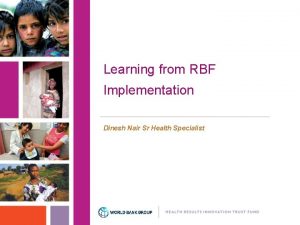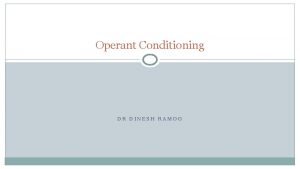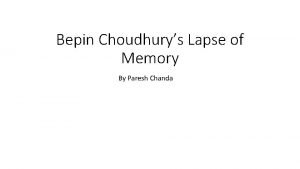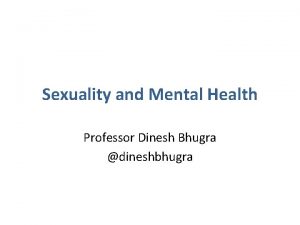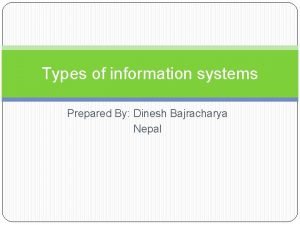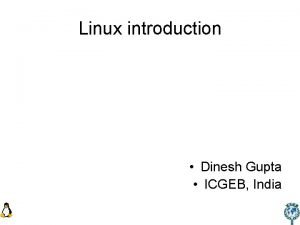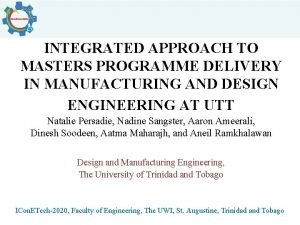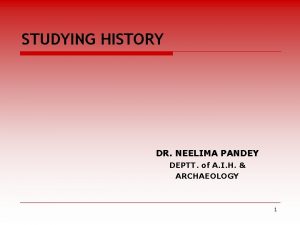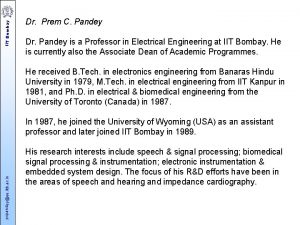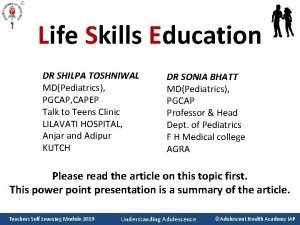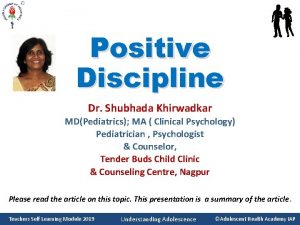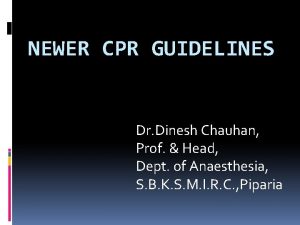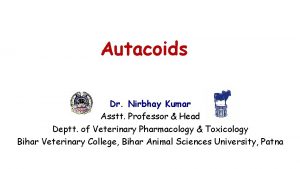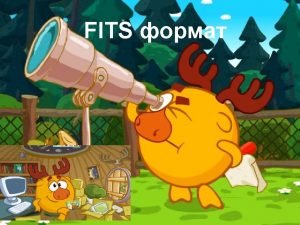Dr Dinesh Chandra Pandey MDPediatrics Prof Head Deptt











- Slides: 11

Dr. Dinesh Chandra Pandey MD(Pediatrics) Prof. & Head Deptt. Of Pediatrics CIMS & Hospital , Lucknow

PEDIATRIC NUTRITION & ITS DISORDER

• If ever I get a chance, I should love to be reborn just to have ecstasy of being red fed by the kindly mother. • Nutrition = Nourishment=Neutricus = to suckle at the Breast. • “ Nutrition” is the provision for the cells and organism of the materials necessary in the form of food to support life. • Nutrition is the science that studies the relationship of human to food. ss

NUTRIENTS • Science of the nutrition based on the nutrients found in the body. • Nutrients are the chemical substances supplied by the food that the body need for growth, development, maintenance and repair.

Classification of Nutrients A- On the Basis of Quantity Macro Nutrients- Required in large quantity necessary for building body structure eg: • Carbohydrate. • Fat. • Protein. • Contd. Micronutrients - Required in small quantity necessary for body metabolism and immunity eg: • Minerals • Vitamins • Fibers etc

B- On the Basis of Nutrients synthesis in the Body. • Essential Nutrients- Body not able to synthesize these nutrients while they are important for growth and development of body. It should be must supplied by food in the diet eg. Vitamin A, Vitamin C, Calcium etc. • Non -Essential Nutrients – Body is able to synthesize these nutrients no need of supplementation of food in diet eg; alanine amino acid etc.

FUNCTION OF NUTRIENTS • Serve as source of energy. • Support the growth and maintenance of tissue. • Regulation of basic body process. These life sustaining functions collectively are the part of the metabolism, the sum of all physical and chemical changes takes place in the body.

ENERGY • Energy is the capacity to do work. • In order to maintain body weight energy intake must be equal to energy expenditure. • Energy has various forms all food enters into as a chemical energy in the body it convert into an other forms of energy like mechanical in muscle and electrical into nerves. • The energy both in the food and body measured in kilocalories. • Carbohydrates', fat and proteins are energy nutrients.

Energy Balance Total energy comprises – -Basal Metabolic Rate (BMR)- 50%- 75% - Physical activity 20%-40% -Diet induced thessrmo genesis 10%

Nutrients Requirement of Healthy Children's • Recommended Dietary Allowances (RDA) is the intake that meets the need of 97 -98 percent healthy individuals in a life stage and gender group. • It does serve as benchmark. It is intended for use as goal for daily intake by individuals. Deviated from RDA create nutritional imbalance in individuals.

RDA Group Energy(kcal ) • Infant • Children 1 -3 year 4 -6 year 7 -9 year Boys(10 -12 y) Girls (10 -12 y) Boys (13 -15 y) Girls (13 -15 y) Boys (16 -18 y) Girls (16 -18 y) 100/kg 1240 1690 1950 2190 1970 2450 2060 2640 2060 Protein(g/d) 2/kg 22 30 41 54 57 70 65 78 63 Fat(g/d) 30 25 22 22 22

